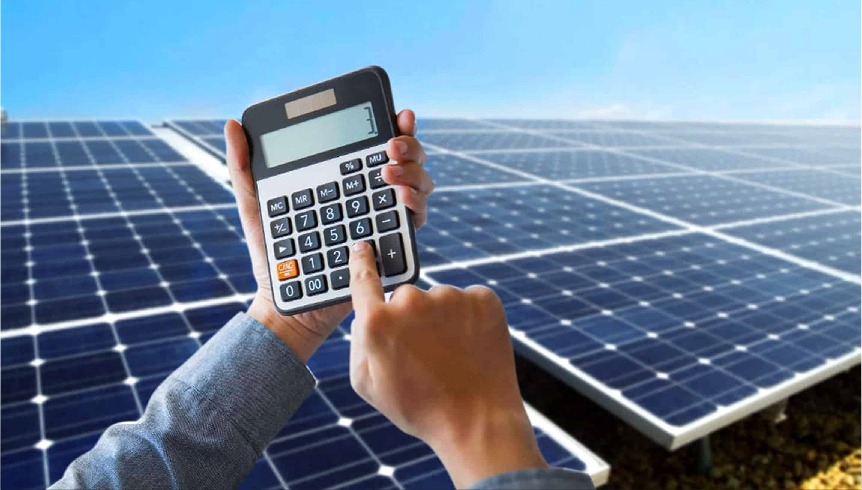
Solar Incentives Explained: How They Save You Money
The good news? Governments worldwide, including in Pakistan, offer solar incentives in Pakistan to make the transition smoother and more affordable.
Have you ever thought about switching to solar but hesitated because of the upfront cost? You’re not alone. Many people are excited about renewable energy but get a sticker shock when they see the price tag for a solar panel system. The good news? Governments worldwide, including in Pakistan, offer Solar incentives in Pakistan to make the transition smoother and more affordable.
In this blog, I’ll break down what solar incentives are, how they work, and why they’re worth your attention. And hey, if you’re curious about how solar can actually pay you back, check out my previous blog, Did You Know? Solar Power Could Pay You Back!.
What Are Solar Incentives?
Simply put, solar incentives are benefits provided by governments or energy organizations to encourage people to adopt solar energy. These can come in many forms—rebates, tax credits, subsidies, or even performance-based incentives.
In Pakistan, the government is actively promoting renewable energy as part of its sustainability goals. Solar incentives are designed to reduce the financial burden on homeowners and businesses, making solar systems accessible to more people.
Types of Solar Incentives You Should Know
Solar incentives aren’t one-size-fits-all. Here are the main types that you might come across:
1. Tax Rebates and Credits
In Pakistan, businesses adopting renewable energy may enjoy tax reductions under certain government policies.
Think of these as cashback offers on your taxes. There is a tax credit available for a portion of the cost of installing a solar panel installation. In Pakistan, businesses adopting renewable energy may enjoy tax reductions under certain government policies.
2. Upfront Subsidies
The government may directly reduce the cost of solar panel installations by offering upfront subsidies. For instance, under certain provincial schemes, you might find discounts on residential or agricultural solar systems.
3. Net Metering Benefits
Pakistan has implemented a net metering system, which allows you to sell excess electricity back to the grid. This not only reduces your energy bills but could even earn you some extra cash.
4. Zero-Interest Loans
Some banks and financial institutions in Pakistan offer zero-interest loans for renewable energy projects, including solar. This means you can spread the cost of your system over several years without worrying about added interest.
5. Performance-Based Incentives (PBIs)
Under PBIs, you’re rewarded based on the energy your system generates. Although not common in Pakistan yet, such programs could emerge as solar adoption increases.
How Solar Incentives Save You Money
Let’s talk numbers. Installing a solar panel system in Pakistan can cost anywhere from PKR 300,000 to 1,000,000 for residential setups, depending on the size and type. Incentives can significantly lower this initial investment.
For example, under net metering, you might save PKR 10,000–20,000 monthly on your electricity bill. Over a year, that’s a savings of up to PKR 240,000! Combine that with a subsidy or zero-interest loan, and your system could pay for itself in just a few years.
Are Solar Incentives Worth It?
Absolutely! Solar incentives not only make renewable energy more affordable but also provide long-term benefits. Here’s why they’re a win-win:
- Lower Upfront Costs: Incentives make it easier to invest in a solar system without draining your savings.
- Quicker Payback Period: The combination of subsidies and net metering means you recover your investment faster.
- Increased Property Value: A solar-equipped home is more attractive to buyers, giving you a higher resale value.
- Environmental Impact: By taking advantage of incentives, you’re contributing to a cleaner, greener future.
What to Keep in Mind Before Applying
While solar incentives sound fantastic, here are a few things to consider:
- Eligibility: Make sure you meet the requirements for the incentive program you’re interested in.
- Documentation: Be prepared to provide detailed paperwork, including proof of installation and compliance with standards.
- Policy Changes: Government policies can change, so it’s crucial to act while incentives are still available.
A Golden Opportunity for a Green Future
Solar incentives in Pakistan are like a helping hand, guiding us toward a cleaner, more sustainable future without overwhelming our wallets. They’re not just financial perks—they’re an investment in energy independence, environmental preservation, and long-term savings.
So, are solar incentives worth it? Without a doubt. If you’ve been sitting on the fence, now’s the time to act. With the right incentives and a little planning, you can make solar energy work for you, your wallet, and the planet.
Expert Support for Solar Panel Solutions
For all your solar panel inquiries and support, JS Technology offers prompt and reliable assistance. Trust our expertise to provide efficient solutions tailored to your needs, ensuring optimal performance, satisfaction, and benefits Solar incentives in Pakistan.








Solar Policy In Pakistan, Who Decides It? Why It Matter - JS Technology
February 26, 2025[…] people from making the solar leap. Want to dig deeper into this topic? Check out my blog, What Are Solar Incentives? And Are They Worth It? for a closer look at how incentives impact your solar […]